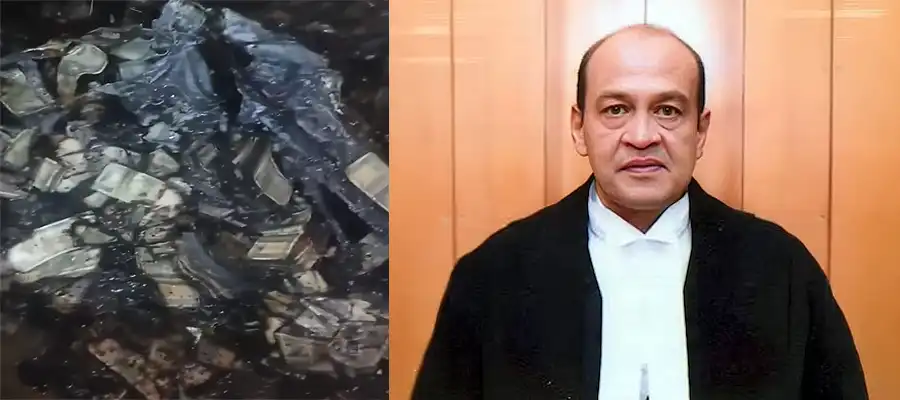Justice Yashwant Varma's Case has turned out to be a major talking point in India. The twists and turns in Justice Yashwant Varma's case have made entire confused regarding what to believe and what not to believe. For those who haven't followed the case, a Delhi High Court judge Justice Yashwant Varma came under legal scanner after a pile of burnt cash was discovered on Holi at his home after a fire was put out. In response, Justice Varma said last week neither he nor any member of his family kept money in the outhouse - a structure he said is "disconnected from the main residence", is kept unlocked, and can be accessed by anybody else. He also declared himself "truly shocked" and claimed a "conspiracy" against him.
Following the burnt cash discovery, many developments have come. Below is everything you need to know and breakdown of the case.
Justice Yashwant Varma's Case Explained
The case of Justice Yashwant Verma has created a stir in the Indian judiciary. On the orders of the Supreme Court, the High Court started an internal investigation into the matter. The report was made public on Saturday night, in which videos are also present as evidence.
In it, Chief Justice of Delhi High Court Devendra Kumar Upadhyay has said that this matter demands a thorough investigation. The report also stated that Justice Yashwant Verma has completely rejected the allegations. He says that this is a conspiracy against him and an attempt is being made to defame him. Questions are being raised within and outside the judiciary as to what further action will be taken against Justice Verma. Will he be suspended or terminated, or will this matter go to impeachment?
Former Supreme Court judge SN Dhingra has raised serious questions about this matter. He said, "The police did not secure the crime scene, which created the possibility of tampering with evidence. If the outhouse is not sealed, the entire investigation will be affected. I don't think anything concrete will come out of the criminal investigation."
What's next for Justice Yashwant Varma?
BJP leader and senior lawyer Ujjwal Nikam was quoted saying, "The Supreme Court has set an example of transparency in the judiciary by starting an in-house investigation. The stability of any country depends on two things - one, the trust of common citizens in the country's currency and second, trust in the judiciary."
He further said, "In the case of the huge amount of cash found from Justice Verma's house, only transfer, suspension or termination will not be enough. If concrete evidence is found in this case, then criminal prosecution can also take place. Parliament will have to decide whether to bring an impeachment motion in this case."
What is the process of impeachment of a judge?
Under the Indian Constitution, only the President of India has the right to remove any judge, who takes a decision on the basis of a motion passed by both the houses of Parliament. The process of removing judges has been laid down in the "Judges Inquiry Act, 1968".
An impeachment motion can be presented in the Lok Sabha or Rajya Sabha. At least 100 MPs will have to sign it in the Lok Sabha. At least 50 MPs will be required to agree to it in the Rajya Sabha. If the Speaker or Chairman approves this motion, a three-member inquiry committee will be formed, which will include a Supreme Court judge, a High Court Chief Justice, and a renowned jurist.
This committee will investigate the allegations and the judge will get a chance to explain himself. If the judge is found guilty in the investigation, the report will be placed before the Parliament. It will be debated in both houses of Parliament and if the proposal is passed by a two-thirds majority, the President can remove the judge from the post.
Can this become an impeachment case?
At present, the Supreme Court report only indicates that the matter should be investigated in depth. But the question is that if more evidence is found in the investigation, will this case lead to impeachment? In the history of independent India, the process of impeachment motion has not been completed against any judge yet.
What has happened in the case till now?
On Monday i.e. March 24, Delhi High Court Chief Justice DK Upadhyaya announced that Justice Yashwant Varma has been removed from active duty with "immediate effect till further orders". As per reports, Justice Varma heads a division bench dealing with matters relating to sales tax, goods and services tax, company appeals, etc.
Notably, the Supreme Court has also formed a three-member committee - consisting of the chief justices of the Punjab and Haryana, Himachal Pradesh, and Karnataka High Courts - to investigate the matter.
